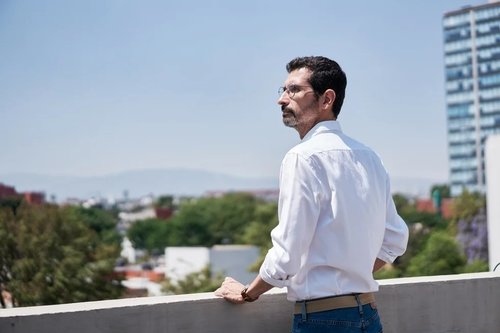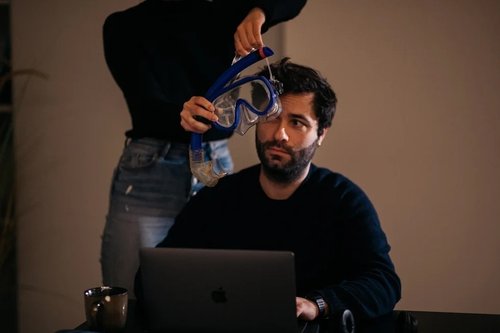Is it boom or bust for Turkey’s hyper-casual gaming sector?
Mar 08, 2022 - updated Apr 11, 2022
7 mins


Journalist
The past two years have been far from smooth for Turkey. While the nation struggled during the Covid-19 pandemic, its situation was further complicated by a massive currency crisis, challenging businesses from the service industry to manufacturing. But for one sector the opposite has been true. In 2020, Turkey’s gaming industry celebrated its most lucrative year ever, with revenue reaching $880 million. In June 2020, Istanbul-based Peak Games was acquired by Zynga for $1.8 billion, making it Turkey’s first unicorn (a privately held company valued at more than $1 billion). Turkish-developed mobile games accounted for 20% of the top 100 downloaded titles in the US in 2021.
All of this success has drawn young developers, passionate about gaming and hungry to cash in on a sector of their nation’s economy that seems destined to thrive. But behind the glossy facade of big deals and globally successful titles, developers are plagued by long working hours, intense competition and low pay. So is it boom or bust for Turkey’s gaming industry?
The boom
The Turkish gaming sector has been on the rise for the past decade, but its trajectory really took off in 2020. Turkey has become a hub for the hyper-casual—easy-to-learn mobile games targeting a broad audience that you might play on your commute: Candy Crush Saga, say, or Temple Run. Nearly 59% of gamers were casual in 2020, making it an industry worth more than $8 billion. Two Turkish game companies, Peak and Dream Games, became unicorns, and several other big studios, including Rollic, were bought by US companies for hundreds of millions. Turkey has attracted a staggering $2.4 billion in investment since 2015.
The economy’s struggle
Turkey is currently undergoing its worst economic crisis in nearly two decades. Earlier this year, the annual inflation rate reached 36.1%, its highest since 2002. This correlates with a steep decline for the Turkish lira. To put that in context, in June 2018 $1 was equal to 4.5TL. In January 2021, $1 was worth 8.7TL. The decline is due in part to President Recep Tayyip Erdoğan’s view that cutting interest rates would lead to lower consumer prices. Now Erdoğan, in power for nearly 20 years, faces more challenges to his leadership as his popularity declines.
Economic hardship coupled with the Covid-19 pandemic has meant trying times for Turkey. The gaming industry adapted to government-imposed edicts to work from home. And with millions of people around the world with time on their hands, gaming boomed. Young Turks flocked to the sector hoping to outrun the nation’s recession—but the economic crisis is still impacting the industry. Though some experienced developers are paid competitive salaries, the Turkish lira has been losing value almost as quickly as workers are able to earn. In addition, employers are not obliged to increase salaries in line with inflation, which means workers’ income and savings are constantly unstable.
Mete Sezgin, a lead game designer and former teacher, says it’s hard for young developers to make ends meet. “When you do the exchange with USD, they usually earn around $300 a month. That’s really not good. They start to question whether or not they should stay in Turkey. If you want to buy a computer, you need about 60,000 Turkish lira ($4,426) to get a decent one. That’s a lot of money. That blocks a lot of these juniors.”
Turkish-owned companies are obliged by law to pay workers in Turkish lira, but foreign businesses are able to choose which currency they use. While many game studios are Turkish-owned, an increasing number are being bought by foreign companies. Özgü Türk, an Izmir-based employment lawyer, says foreign-owned companies often choose to pay in the cheaper Turkish lira at the expense of the workforce. Istanbul’s most successful studio, Peak, continues to pay its employees this way.
“The company chooses whether they pay in dollars or lira,” Türk says. “American companies don’t have to pay in dollars, there are no rules. The strategy of the AKP government is to attract foreign companies to invest in Turkey, because the employment-law system is weak. It allows companies to exploit workers easily. For foreign companies, the pull to Turkey is cheap labor.”
Although some companies do offer benefits to offset the instability of the currency, many employees continue to feel exploited. Attila Kabakcıoğlu, a developer, says he recognizes that many businesses have their hands tied, but they fail to distribute the growing profits fairly to all staff. “Companies are obligated to pay in TL because it’s the law,” he says. “But most company founders keep the big pie to themselves and give the crumbs to the employees. Some of them give stocks, and some of them give bonuses. But most don’t.”
Burnout
Young developers often flock to the gaming industry because they’re excited to pursue their passion and make some cash—then they are hit by long working hours and intense demands from employers. Avci’s first job was a wake-up call. “I worked in three different studios over three years,” he says. “In my first job there was a lot of mobbing (when employers try to force you into quitting), and the pay was very low for the artists and developers. They treated us like slaves. I was working 20 hours a day and sleeping for four—at the office on a beanbag. In Turkey, most of the young people who enter the gaming industry do it because they love gaming. But there are tons of developers and artists. So it can turn into a situation of, ‘If you don’t do this, I will fire you and I can hire someone else for less money.’ They use it against you.”
Intense hours are fuelled by the demands of the Turkish industry: studios here churn out games at a far greater speed than their European counterparts, but at a huge cost to the workers. Avci says the workload is unsustainable. “Even if they give you lots of money, they also force you to work too much. I heard from one of my 3D designer friends that his company asked him to make 15 games in a month. Maybe two or three is reasonable with hyper-casuals. More than four means burnout. It’s not sustainable for your mental or physical health.”
Türk echoes his comments. “Burnout working conditions in Turkey damage people’s psychology,” she says. “They feel alienated from the work they do—they are like machines. They don’t have enough time for themselves. Educated workers are suffering because they can’t separate themselves from their work. Depression is a huge problem.” Türk says it’s not only mentally draining for workers, but illegal. “The law of employment says a worker can work a maximum of 45 hours a week, and a supreme court ruling added that they can work three hours extra a day. So in total, employees can work a maximum of 11 hours a day. Turkish gaming studios employ the workers like slaves.”
Intensity of competition in the industry is another factor that contributes to burnout. Istanbul alone is home to more than 600 game studios, and is attracting many more. But that means more competition. Batuhan Avucan, founder of Mobidictum, a game-industry news site, says that if you don’t keep up with the pace, you’ll be left behind. Other developers might steal your ideas and work them up before you have the chance to. “Hyper-casual is all about speed,” he says. “If it’s on your mind, it’s also on someone else’s mind. The moment you put your game out to test, someone might see it, and if they are a faster programmer than you, they can steal it. If they have a higher marketing budget, or if their publisher is faster, they might take your success as well. The burnout comes from the business model. New studios are popping up every day. Some make four games in a month, some 20. When it’s all about speed, you either choose to race or you leave the competition.”
Brain drain
Turkey’s economic crisis and political instability have led to a brain drain, with more than half of all Turks claiming they’d like to live or study abroad, according to a survey by MetroPoll. Avci says it breaks his heart to leave his country, but relocating to Finland has made him feel alive again. “Most young Turks who are educated are trying to escape from the country,” he says. “Unfortunately, I use the word ‘escaping,’ but that’s what’s happening, even if they get paid less. They don’t just care about money, they also care about life standards. I actually feel a little sad to say this, but I felt like a decent human when I came here.”
Brain drain and the nature of the hyper-casual gaming sector will continue to pose problems for the industry. Hyper-casual games are simple at their core, and passionate developers often seek out opportunities in the more complex casual or AAA gaming fields in which Turkey still lags behind. For ambitious developers, long hours with low pay aren’t good enough. Sezgin says that his former students wanted to take their skills abroad and get involved in splashier projects. “Young developers often feel stuck in the hyper-casual world,” he says. “They are keen to get into AAA or casual games. All of my students are saying that once they graduate, they want to move to the US or Vancouver, in Canada, where the gaming industry is strong.”
While the boom in Turkey’s hyper-casual gaming sector is a tribute to its creative workforce, it has a long way to go before it meets the standards of its European counterparts. But some are hopeful that better working conditions will come with time. “The Turkish industry is really, really young,” says Avucan. “Europe and the US have different genres of games, which require a different skill set we don’t yet have. The talent pool is still limited. But there are a lot of new genres coming. Most of our studios are still figuring it out.”
Avci admits that while things are tough, these are just growing pains. “There are no workers’ rights in the game industry yet, because there are no standards. The government doesn’t know what the industry is or how it works. There are no unions for people to demand rights for their jobs. It’s a newly thriving field, so these are normal pains.”
Photo: Welcome to the Jungle
Follow Welcome to the Jungle on Facebook on LinkedIn and on Instagram and subscribe to our newsletter to get our latest articles every day!

More inspiration: International

Germany trials the four-day workweek: “Free time is invaluable”
Germany's four-day workweek trial may be the solution to greater productivity, worker satisfaction, and work-life balance.
Jun 10, 2024

The Fuckup Nights movement: The art of sharing failures on stage
Discover the global movement fostering learning, community, and authenticity with Fuckup Nights co-founder Pepe Villatoro.
May 23, 2024

Why is Europe so eager to attract foreign workers?
Looking for work abroad? Now might be your chance. The European Union is facing labor shortages, prompting efforts to attract foreign workers.
May 22, 2024

What if working less isn't the answer?
For sociologist and researcher Julia Posca, "It's not just about working less, it’s mainly about working better."
Apr 10, 2024

Hangover leave? Pawternity PTO? Explore the world’s quirkiest paid leave initiatives
Need time off for your birthday, a breakup or simply a lack of motivation? In some countries, it's possible.
Apr 04, 2024
The newsletter that does the job
Want to keep up with the latest articles? Twice a week you can receive stories, jobs, and tips in your inbox.

Looking for your next job?
Over 200,000 people have found a job with Welcome to the Jungle.
Explore jobs